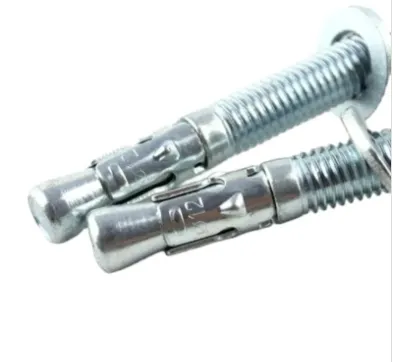Nov . 26, 2024 20:26 Back to list
Exploring Reliable Sources for Bolt Suppliers and Quality Fasteners
Understanding Bolt Suppliers A Key Component in Manufacturing and Construction
In the world of manufacturing and construction, bolts are fundamental components that play a critical role in holding structures and machinery together. As essential fastening devices, bolts are used in a myriad of applications, from assembling furniture to constructing skyscrapers. Consequently, the suppliers that provide these bolts are pivotal to the efficiency and reliability of various industries. This article will explore the significance of bolt suppliers, the factors to consider when choosing them, and the trends affecting the market.
The Importance of Bolt Suppliers
Bolt suppliers serve as the foundation of many manufacturing processes and construction projects. They ensure that quality bolts are available in diverse specifications, catering to different industrial needs. For example, in the automotive industry, high-strength bolts are crucial for safety and performance. In construction, corrosion-resistant bolts are essential for outdoor applications to withstand various environmental conditions.
Moreover, the reliability of a bolt supplier directly affects the overall quality of the finished product. Subpar bolts can lead to structural failures, product recalls, or safety hazards, which can have devastating consequences for manufacturers and consumers alike. Therefore, selecting the right supplier involves careful consideration and thorough evaluation.
Factors to Consider When Choosing Bolt Suppliers
1. Quality Assurance When selecting a bolt supplier, prioritize their quality assurance processes. Look for suppliers who adhere to international standards such as ISO 9001, which ensures consistent quality management practices. Quality certification indicates that the supplier is committed to maintaining high standards in their production processes.
2. Product Range A reputable bolt supplier should offer a wide range of products to meet diverse needs. This includes various sizes, grades, and materials, such as stainless steel, alloy steel, and carbon steel. A diverse product range allows manufacturers to source all their fastening needs from a single supplier, improving efficiency and reducing costs.
3. Customization Options Some projects may require customized bolts tailored to specific applications. Seek suppliers who can accommodate custom orders, including unique dimensions or special coatings. This flexibility indicates a supplier’s willingness to meet customer needs and enhance their partnerships.
bolt suppliers

4. Lead Times and Availability Timely delivery is critical in maintaining production schedules. Evaluate a supplier's lead times and stock availability. A reliable supplier should provide clear information regarding their delivery capabilities and be transparent about any potential delays.
5. Customer Service and Support Excellent customer service can make a significant difference in your experience with a supplier. Choose suppliers who are responsive, knowledgeable, and willing to assist with any inquiries or issues that may arise. Strong communication can foster long-term relationships and ensures smoother transactions.
Trends Influencing the Bolt Supply Market
The bolt supply market is impacted by various trends that shape its future. One significant trend is the increasing focus on sustainability. Many manufacturers are seeking eco-friendly materials and processes to reduce their environmental footprint. Bolt suppliers that adopt green practices, such as using recycled materials or reducing waste, are likely to become more attractive to conscientious customers.
Additionally, advancements in technology are transforming how bolt suppliers operate. The rise of automation and predictive analytics in manufacturing is improving efficiency and accuracy. Suppliers that embrace these technologies are likely to provide faster turnaround times and enhanced product quality, solidifying their position in a competitive market.
Lastly, the global supply chain disruptions caused by events like the COVID-19 pandemic have prompted many industries to reassess their sourcing strategies. Companies are now more inclined to seek local suppliers to minimize risks associated with shipping delays and tariffs.
Conclusion
Bolt suppliers are vital players in the manufacturing and construction sectors, impacting quality, safety, and efficiency. By understanding the importance of these suppliers and considering key factors when choosing one, businesses can forge effective partnerships that enhance their operations. As the market evolves with trends in sustainability and technology, staying informed will be crucial for companies seeking to maintain their competitive edge.


